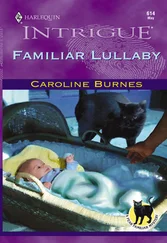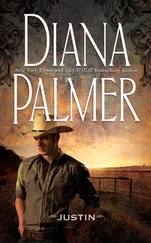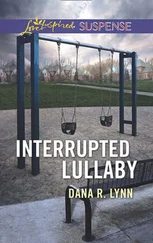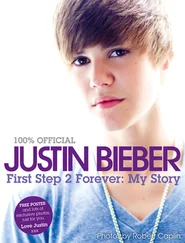“I’m not reading that,” Bluto said.
“Björk’s percussionist has a donkey jawbone. I want one.”
“Where do I find something like that?”
“I don’t know. Iceland?”
“Anything else?”
“Yeah, who’s the golfer?”
The manager cleared his throat, turned ever so slightly toward Peter. “Dr. Silver is a friend of Jimmy’s.”
Peter said, “Hello.”
“Is he cool?”
“He’s a board-certified doctor, if that’s what you mean.”
The kid pulled at his lip. “You’re not a journalist?”
“I’m a hospitalist.”
“I sit behind the plates,” the kid said. “Name’s Albert.”
Bluto took the kid’s note and shoved it in his pocket. “If you show the doctor around when we get to the joint, I’ll have Wayne track down your thing.”
Albert slid out from the booth, stopping in front of Peter. “I’ll see you later, donkey bone.”
•••
Bluto said, “His girlfriend is a famous Polish conceptual artist.”
“I don’t know any Polish conceptual artists.”
“I’ve met her a few times. She looks about fifty because she was born under communism.”
“How old is he?”
“Albert turns twenty next month.” Bluto looked up and smiled. “Not bad for a kid who was homeschooled in a van.”
The bus started to rattle as the driver swung them toward an exit ramp.
“Should we talk about your expectations for my role on the tour?”
Bluto closed his laptop. “Let’s be clear, I don’t have any expectations. I do, however, have a rule: don’t make us late. I’m paid to babysit the band. People not in the band need to be self-sufficient. Wayne will give you a copy of the itinerary each morning. Don’t lose it.”
“Is there an itinerary for today?”
“Don’t take this the wrong way, but we sort of overlooked you.”
Martin had warned Peter that the music industry was, in many ways, the inverse of the health care industry. While the health care industry valued order and discipline, the music world revered disorder and risk. When he was on his way to a gig with the Steel Retractors, Martin made it a point not to wear his seat belt; he believed that acts of self-preservation were fundamentally antithetical to strapping on a guitar. Of course, Martin’s car weighed five thousand pounds and, in the event of an accident, he’d find himself cocooned in ten Teutonic air bags. If Martin wanted to embrace the rock-and-roll spirit, Peter thought, he ought to buy a motorcycle.
“Do me a favor,” Bluto said, “don’t tell Jimmy that we forgot about you.”
Peter asked when he might see the musician.
“You’re having dinner with him.”
The bus shuddered to a halt alongside a row of hooded parking meters. The driver turned on the intercom: “Welcome to Buffalo, Lake Erie’s asshole.”
I’ve been looking forward to Buffalo ever since the show was announced. Cross is appearing at the Stanley Opera Center, a refurbished Beaux Arts showplace. 21The building has a great story. In the sixties, in disrepair, the original Wurlitzer organ was entombed in a plywood box, while the stage (where Caruso sang!) was walled off to create a movie screen. But a few years ago a new ownership group set about restoring the place. They brought in artisans to repaint the house-sized frescoes that bracket the stage. From the crimson velvet wallpaper to the soap powder dispensers in the washrooms, the place is period correct. The brass pipes of the organ give off a nautical gleam.
The Stanley seats only 3,200 people, making it one of the most intimate venues Cross plays. The space is renowned for how it showcases the human voice. 22That matters, because when the sound is good Cross can loosen the reins and allow nuance to sneak into the songs. For example, I had no idea “Fatty Arbuckle” was a song about moral turpitude in Vietnam until I heard him sing it at the Metropolitan Opera House.
I’m feeling quite optimistic, in part because this morning, in room 11 of the Barge Inn — I wouldn’t have been there if not for Gene — I realized that if I’m ever going to read the book about Cross’s life on the road, I’m going to have to write it myself.
Imagine: the day has already been auspicious, and there’s still a show to attend.
People started to gather on the sidewalk as soon as the bus stopped. But for the fact that they weren’t carrying signs, they resembled the sort of folks one might see protesting a nuclear reactor or genetically modified foods. The women, Peter noticed, preened as though the bus were a full-length mirror. They tilted their heads so that their necks appeared elongated, vulnerable. The men leaned against the building, as remote as cowboys.
A woman wearing a gray linen dress walked over to the bus, kissed her fingers, and touched them to the window, leaving a damp smudge on the glass.
Albert appeared next to Peter. “Watch this,” the drummer said, pressing the palm of his hand against the glass.
The crowd surged forward, phones waving like cilia. Peter recalled reading that in medieval times, a castle only raised its flag when the king was present.
“My hand is all over the Internet.”
Bluto said, “That’s something you can tell your grandkids.” A line of text bounced inside the border of his laptop’s screen. Rendered in fuchsia, the screen saver read, “Why Are You Looking at This?”
“Should we sally forth?” Albert asked.
The obvious answer was no.
But when they stepped off the bus, the crowd parted to let the men through. Peter could sense that people scanned his face, but his face didn’t hold their attention. What surprised him was that they didn’t seem to give much notice to Albert either.
Once they’d cleared the block, Peter said, “The fans don’t bother you.”
“Most can’t even see me,” the drummer said, tapping a new pack of cigarettes against the palm of his hand. “They figure I’m delivering pizzas. I’ll take indifference over the stickheads who want to know what brand of stool I ride.”
They turned a corner, ducked under a strand of yellow caution tape, and squeezed between an eighteen-wheeler and another custom motor coach.
Albert nodded toward the bus. “This is the Trojan Horse. Late tonight, while you and I are catching Zs in our hotel, the roadies will crate things up and head off to the next stop.”
“What do you call the bus we were on?”
“I think it’s just the bus.”
They came to a wide steel door set in a featureless brick wall. Albert tried to pull it open, but it was locked. He pushed a buzzer.
A damp wind funneled past the building; Peter, in a thin corduroy jacket, dress shirt, and khakis, shivered. He hoped someone would answer so they could get inside.
“They might be taking lunch,” the drummer said.
“Should we try another door?”
Albert shook his head. He plugged a cigarette into his mouth and lit it. “I tried quitting,” he said, “but my girlfriend smokes and if I stop I can’t stand the way she smells. Now I have one a day, like a vitamin.”
“Bluto said she’s Polish.”
With the same hand that held the burning cigarette, Albert reached out and straightened the lapels of the doctor’s jacket. “Is there a part of the body you favor?”
It took Peter a moment to untangle the question. “I’m not a specialist, if that’s what you mean.”
The kid turned and beat his fist against the door. “So what’s wrong with him?”
“I can’t discuss a patient’s health. It’s against the law.”
Albert dropped his cigarette and ground it under the sole of his shoe. “So he’s your patient.”
Читать дальше












